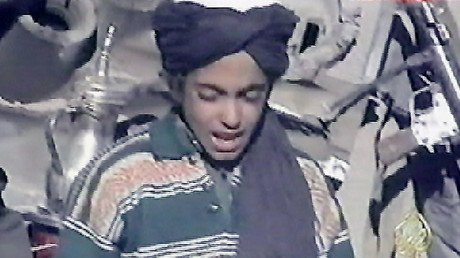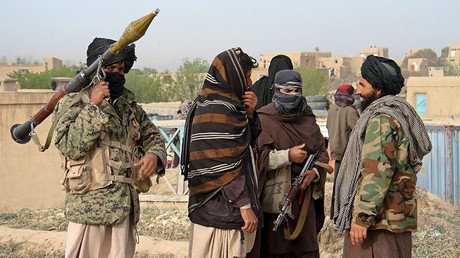Taliban active in more parts of Afghanistan than before US invasion – intel agency
Taliban insurgents in Afghanistan are now operating in more territories than they were prior to the 2001 US campaign, a report by private intelligence agency Stratfor cautions. The paper also warns of the Taliban’s closer ties with Islamic State.
Despite partial success by the Afghan military, their action is being “overshadowed by the Taliban's much larger gains elsewhere,” Stratfor says in its latest assessment.
The agency warns that the “Taliban now operates in more territories in Afghanistan than it has in 2001” when the US started its military campaign in the country to drive the group out. A major point of concern is Afghanistan’s largest province of Helmand, which is almost completely under the control of insurgents.
“Despite heavy U.S. airstrikes in the area, the Taliban – who already control 80 percent of the region – have steadily encroached on the provincial capital of Lashkar Gah,” Stratfor warns. The group is now engaged in a large-scale offensive to seize the remaining territories in Helmand.
Despite joint efforts by the Afghan army and US Air Force, insurgents continue to push forward in other provinces. On August 15 the Taliban seized a key district in northern Baghlan province, just 100 kilometers away from the country’s capital Kabul.
Stratfor also points at another worrying trend, that is of the Taliban recently clinching a shaky truce with one of its key rivals in Afghanistan – Islamic State (IS, formerly ISIS/ISIL) militants. “The short-term cessation of hostilities has enabled the Taliban to concentrate on pushing back Afghan troops in Nangarhar province,” the intelligence group said.
The plight of Helmand province as well as closer ties between IS and the Taliban are causing “major concerns”, spokesperson for the Russian Foreign Ministry, Maria Zakharova told reporters on Thursday.
In addition to the dire situation in the war-ravaged state, a Taliban breakaway faction that remained silent for nearly a year has now reportedly appointed a new leader. In a video obtained by AP, a group called Mahaaz-e-Dadullah, named the nephew of the late chief, who was killed by the Taliban in 2015, a new head. In the footage the group vowed to fight “foreign forces” in the country and also take revenge for the death of their assassinated leader.
The latest development would further complicate the US-brokered reconciliation process in Afghanistan, Washington announced. “Anytime you’ve got any splinter groups emerging, that does make those efforts more complex,” Mark Toner, US State Department spokesperson said during the press briefing on Wednesday.
In May US President Barack Obama praised the killing of then-Taliban chief Mohammad Mansur in a US air strike as a ”milestone” in bringing peace to Afghanistan. However the offensive actions by the insurgents did not stop after the election of his successor, Mawlawi Akhudzada.
Meanwhile, US drone warfare against the Taliban isn’t letting up. According to the latest data released by The Bureau of Investigative Journalism the US has conducted at least two strikes a day against the insurgents since June alone.
On Thursday the US Department of Defense also announced the sale of more than 6,000 rifles and machine guns to Afghanistan to aid its fight against insurgency.
In its official statement the body claimed the deal would “improve the security of a strategic partner by providing weapons needed to maintain security.”
Earlier Obama pulled back on his initial plans to reduce the number of American ground troops in Afghanistan from 9,800 to 5,500. Instead some 8,400 US military personnel will remain in the country until at least the end of next year.
The presence of foreign troops however will only help factions like Taliban in “recruiting young Muslim men,” a former US Marine and State Department official, Matthew Hoh told RT. Back in 2009 Hoh became the first American official to resign in protest over US policies in Afghanistan. He said that American military units across the Middle East and Afghanistan in particular are only boosting chaos. “Without understanding this” the war will continue “with no end in sight,” Hoh added.














